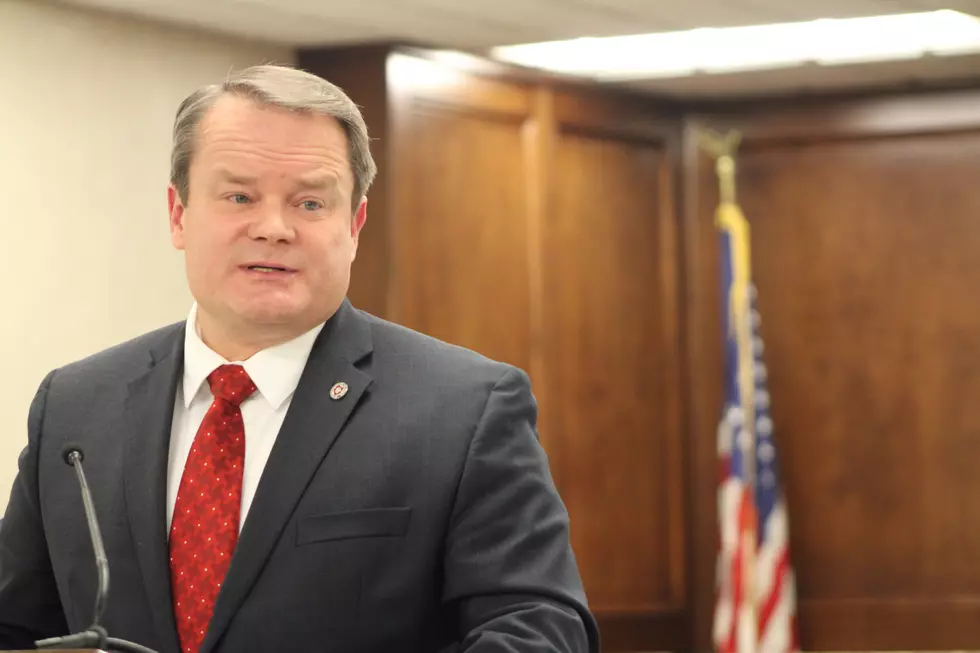
$7 Million Mental Health Crisis Center Coming to Tuscaloosa County
Agencies across West Alabama will soon have a new resource to help them address the area's mental health needs with the creation of a new, privately managed crisis center funded by the state.
In an exclusive interview with the Tuscaloosa Thread, Tuscaloosa County Probate Judge Rob Robertson said the state has allocated around $7 million to create the crisis center, which will be operated by the team at Tuscaloosa's Indian Rivers Behavioral Health nonprofit provider.
Robertson could not speak to the exact specifics of the new crisis center and deferred questions about its location and estimated opening date to IRBH, but he did explain that the new facility will be a major step in the right direction in the community's battle against mental illnesses in the area.
"We are extremely thankful for this opportunity and that we are going to get a crisis center that will be based in Tuscaloosa County. It will likely serve a wider area, but Tuscaloosa County will be the hub and we will get the center here." Robertson said. "We feel very strongly that this is one of the top priorities for our community and it's the first major step forward for mental health that we've seen in decades. It's been difficult and we are completely out of resources."

Tuscaloosa is often referred to as the "mental health capital" of the state, as the county is already home to Bryce Hospital, the Taylor Hardin Secure Medical Facility and the Mary Starke Harper Geriatric Psychiatry Center, not to mention IRBH and DCH's North Harbor Pavillion.
Even so, there has long been a dire need for more mental health resources in the area. More beds for long-term care in the always-at-capacity hospitals, more community resources for those in need and, especially, a better solution for people suffering short-term mental health crises than a stay in the Tuscaloosa County Jail or in a DCH emergency room bed.
"We just frankly have nowhere left to have people treated that are in some very dire situations," Robertson said. "This crisis center is a great opportunity for us and I think we're going to get to start addressing some needs in this community."
The state has already funded around a half-dozen mental health crisis centers in other areas of Alabama, and those are in various stages of planning, construction and operation, but Robertson said those facilities give an idea of what models IRBH can follow here in Tuscaloosa County.
Robertson said the local center, when it is up and running, will likely offer two kinds of beds for patients -- a short-term stabilization bed for stays of 24-48 hours and longer-term observation beds, where patients might stay for as long as a week.
That might not sound like much time, but Robertson said a day or two is often enough to stabilize someone who may be at the worst of a depressive episode or substance abuse situation.
"The vast majority of people with mental health needs can be well served with earlier and more effective intervention, that's the exciting part about this crisis center," he told the Thread.
When you couple the new crisis center with already-announced expansion of beds at Taylor Hardin, area leaders are optimistic that the community is well-positioned to take ground in this long and complex battle.
"If we can manage people better before they get to the point where they have to be in long-term care, that's a win," he said. "If we get additional beds in long-term care by these expansions at Taylor Hardin and freeing up beds at Bryce, that's a win."
What the crisis center will not be, Robertson said, is a be-all, end-all solution for mental illness in the county.
"Part of the understanding that the public has to have is that this is a very large-scale problem and there is no 'magic bullet.' This is a big step, but there will still be a lot of struggles in the mental health system that have to be worked toward," he said. "Even so, this is probably one of the fastest, most effective ways to help given the dynamics that exist. You are reducing the number of folks who are cycling through the jail. You're reducing the number of people who end up in the emergency room. Now there will be an alternative, if someone appears to be medically stable, where that crisis center can help take the load off those two entities."
Exact details of the project are still to come, so stay connected to the Tuscaloosa Thread for updates from IRBH and the Alabama Department of Mental Health about the crisis center they are made available.
Until then, Robertson said the community can rest assured that addressing mental health problems is a top priority for basically every agency in the area — the county, the cities of Tuscaloosa and Northport, all local law enforcement agencies, the University of Alabama, nonprofit organizations, local school systems — all those and more will work together to make sure IRBH is well-equipped to turn the crisis center into what it needs to be for the community.
"All we can do is make it easier to access services, make them more timely and effective — that's what we can do," Robertson said. "We can't always make people take advantage of those and we sure can't make their decisions for them, but we want to do everything we can do to solve what we can solve."
Top Stories from the Tuscaloosa Thread (4/18 - 4/25)
More From Tuscaloosa Thread









